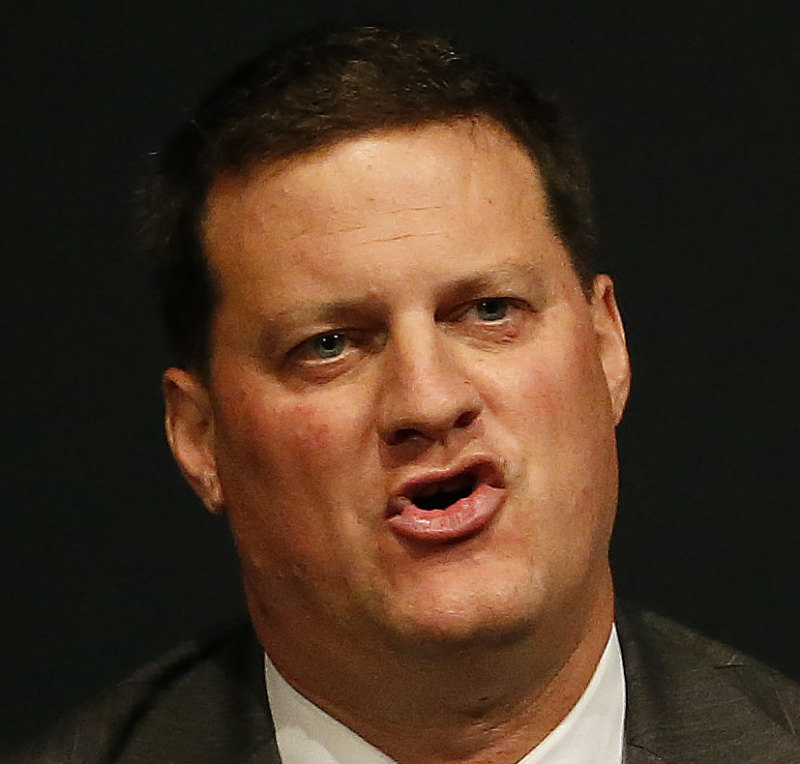O’Donnell admits NASCAR messed up
 |
| Steve O'Donnell |
NASCAR vice president of competition Steve O'Donnell took to the airwaves on Monday morning to inspire confidence that the sanctioning body will take every step to clean up its officiating process after a controversial outing on Saturday at Richmond Raceway. Most notably, an ambulance stopped at pit entry under caution on lap 259 of the Federated Auto Parts 400 just moments after NASCAR race control opened pit road. Several drivers had to dart right to avoid the safety vehicle.
Others, fearing a commitment cone violation, decided to check up. The latter caused a collision between Clint Bowyer and Matt Kenseth. The damage knocked Kenseth out of the race and threatened his playoff standing if a new winner had reached victory lane by the end of the night. Ultimately, NASCAR avoided any of the worst case scenarios, but O’Donnell admitted on SiriusXM Radio that his office needs to improve their officiating process before the playoffs begin this weekend at Chicagoland Speedway.
"It was a rough night for those up in race control," O’Donnell said. "If you're a race team, you talk about wanting to put that behind you. And we're certainly going to have meetings and put our best effort forward heading into Chicago." The final Monster Energy NASCAR Cup Series race of the regular season was a mess from the start with race control calling for an early caution when Kenseth locked his brakes on lap 86. It created a light puff of smoke, but there was no actual reason for the yellow to wave. The ambulance ordeal took place on lap 259.
The final caution waved with three laps to go for Derrike Cope as the 1990 Daytona 500 winner lightly grazed the wall. At the time, Martin Truex Jr. was pulling away for what should have been his fifth victory of the season. The caution needlessly waved and Truex lost the race on an overtime restart. He was ultimately involved in a crash with one lap to go. It was a disaster for NASCAR race control, and O’Donnell didn’t shy away from it. "If you look at the year in data, we've been really consistent and unfortunately, that didn't carry over into Saturday night," O’Donnell said.
"The first (caution) was a quick trigger finger. That was a mistake. If that was the only thing that had happened, I think people would be quick to move on from it. But when you couple that with what happened with the ambulance … "We communicated multiple times for them to stop because pit road was open. Where the vehicle chose to stop obviously was the worst possible place. We can't go back and fix that. We can go back and look at the communication and better look at ways to make sure it doesn't happen. That could have had a huge impact on the race. Actually, it did but even further heading into the playoffs, that's not something you ever want to see happen again."
O’Donnell admitted the last caution was a mistake, too. "As for that last caution, that's not something you want to see happen either," O’Donnell said. "I've been back and forth with Martin, and he's obviously upset. I think that's fair. It's something that we have to look at as we go forward. We need to be consistent and that wasn't our best effort. As we approach the playoffs, we're going to regroup and have a bunch of meetings and get it right." AutoWeek
